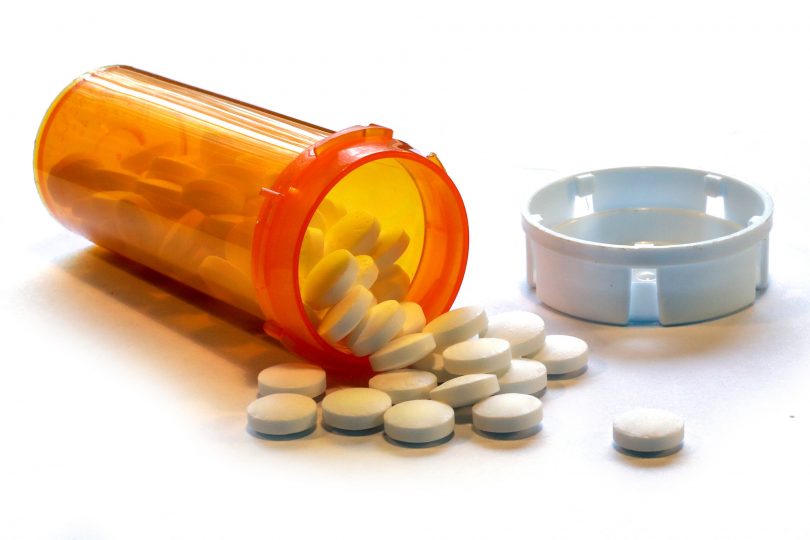According to the CDC, in 2016 there were 15,469 deaths involving heroin. 14,487 involved natural and semi-synthetic opioids.
Oxycodone is a semi-synthetic opioid that was originally created in 1916. Today it’s become a popular drug of abuse. Some of the oxycodone street names are Hillbilly Heroin, Kicker, OC, Ox, Oxy Perc, and Roxy.
It’s marketed to physicians as OxyContin to give to their patients. Patients are also often given other products like the aspirin known as Percodan or acetaminophen known as Roxicet.
Oxycodone is now the most abused legal drug. It’s used as a painkiller and many people find they become addicted to it.
If you’re one of them, it’s time to get the help you deserve. Here’s how to find an oxycodone addiction treatment center.
How To Tell You Need Oxycodone Addiction Treatment
Since most people are first introduced to Oxycodone as a painkiller by their doctor, addiction can creep up on them. The longer you rely on Oxycodone to help alleviate your pain, the greater chance you have of developing a tolerance to the drug.
It’s easy to find you require more than the prescribed dosage to receive the same desired effects. Take this short quiz to answer a few other questions to see if you need rehab for oxycodone addiction.
Oxycodone Rehab Centers Save Lives
As with most other doctor-prescribed drugs, oxycodone comes with its fair share of side effects. Those who abuse this drug are at risk of becoming both psychologically and physically addicted to oxycodone.
Side effects of long-term use include:
- constipation
- drowsiness
- nausea
- vomiting
- dizziness
- loss of appetite
- dry mouth
- itching
Those who take high doses of the drug may also experience:
- severe weakness
- shallow breathing
- slowed heartbeat
- seizures
- clammy skin.
An overdose can lead to death as oxycodone can cause respiratory arrest.
Choosing A Medically-Assisted Detoxification
If you’re truly committed to receiving proper oxycodone addiction treatment, it’s best to go through a medically-assisted detoxification rather than trying to cut out the drug cold turkey.
Since withdrawal symptoms will show up as soon as the user stops taking the drug, it’s safer and easier to manage the effects under a doctor’s care. The medical staff will provide lower doses of oxycodone to help taper you off rather than halting the drug suddenly.
Since the drug is psychologically addicting, it’s necessary to address the mental aspects of the addiction. Other forms of treatment such as individual counseling, group counseling, and cognitive-behavioral therapy are best.
Emotional Symptoms Of Withdrawal
When you enter rehab for oxycodone addiction, you’ll find the emotional symptoms as challenging to handle as the physical ones. However, it’s easier when you know what to expect and have a team of medical professionals to help ease you through the process.
Many patients detoxing from oxycodone in rehab experience irritability, agitation, insomnia, depression, anxiety, and mental fog. They may also experience a feeling of general malaise or suicidal thoughts.
Physical Experience of Withdrawal
When you begin oxycodone addiction treatment, you’ll notice physical symptoms within 8-12 hours.
Withdrawal peaks within the first 72 hours but the symptoms will usually last around one week. However, you might find that certain psychological effects and cravings last longer.
When your withdrawal symptoms begin depends larger on the what form of oxycodone you took and the method in which you took it. Immediate-release formats have a half-life of 3-4 hours while the extended release form has a half-life of 12 hours.
For the first 5-7 days, you’ll receive round-the-clock monitoring to ensure you’re safe at all times. Professionals check your vital signs and you’ll receive medications to help you handle withdrawal.
Physical withdrawal symptoms are muscle aches, nausea, vomiting, diarrhea, body tremors, and hot and cold flashes.
How To Choose The Best Oxycodone Addiction Treatment
There are several different types of rehab for oxycodone addiction you can choose from. However, you should keep in mind that relapse after detox is a possibility.
Relapsing on heroin-based drugs is problematic. Your brain and body are no longer able to process the same amount of drugs as you used before entering rehab. It’s a life-threatening risk that’s not worth taking.
Decreasing your drug cravings and other negative withdrawal symptoms helps you to be less prone to using oxycodone again after detoxing.
Inpatient Programs
The more oxycodone you take and the longer you take it makes for a longer and more difficult detox period. Many addicts find they benefit from staying at an inpatient facility.
At an inpatient oxycodone addiction treatment facility you’re in an isolated environment. There, professional counselors will help you through each step of your rehabilitation process.
Many people prefer an inpatient program because they’re away from their daily triggers and temptations that can lead to a relapse.
Outpatient Programs
You can also choose outpatient rehab for oxycodone addiction. Due to the severity of oxycodone addiction, most experts agree that outpatient rehab is ideal for patients who have already received treatment at an inpatient facility.
An outpatient program is helpful as it provides oxycodone addicts a place to continue with their group therapy in a safe environment. You’ll also find meetings are available along with individual therapy sessions.
Outpatient programs are not isolated. However, many addicts feel this type of treatment is a good option when they’re mentally and physically prepared to stay on a sober path.
Find Oxycodone Treatment You Deserve
Luckily, there are addiction treatment centers available to fit the needs of almost everyone.
There are oxycodone rehab centers for those who are looking for a resort-style experience as they beat their addictions.
Those who aren’t as financially stable will also be able to find a place where they can receive the help they deserve at a state rehab center that accepts Medicaid.
You can also find oxycodone addiction treatment centers if you’re on Medicare or are in the military. Don’t wait to get the help you need.
To learn more about addiction and how to get help, keep reading our blog or contact us at (877) 322-2450.
Sources:
- Centers for Disease Control and Prevention. (2018, August 31). 2018 Annual Surveillance Report of Drug-Related Risks And Outcomes. Retrieved from https://www.cdc.gov/drugoverdose/pdf/pubs/2018-cdc-drug-surveillance-report.pdf
- Drug Enforcement Administration. (2019). Oxycodone. Retrieved from https://www.dea.gov/factsheets/oxycodone


















